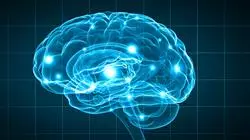University certificate
The world's largest faculty of medicine”
Description
This training makes professionals in this field increase their ability to succeed, which results in better practice and social benefit for the entire community"

Neuroeducation or neurodidactics can be defined as a bridging discipline between neurology and educational sciences, in which educational psychology plays a key role. This is a scientific development project that aims to bring together what we know about how the brain works with what we know about educational processes in the field. It is usually focused on the field of education, in school and academic settings.
Neuroeducation or neurodidactics is a very recent field of activity, in which both educators and neuroscientists collaborate. In this emerging field, specialties such as neuroscience, psychology, cognitive science and education converge to improve teaching methods and school curricula.
Aspects that sometimes seem too technical or with a complicated language are addressed and explained in a clear and accessible way for any interested professional, thus providing a broad view of the theoretical and applied aspects of neurosciences in the different disciplines in which they are currently used.
A unique opportunity to contemplate the wide range of neurosciences applied in the most diverse areas addressed with sufficient clarity to be applied in professional practice.
Students will gain access to the latest advances in neuroscience at a theoretical level, as well as learn how to apply it in their profession, thus offering a qualitative advantage over other professionals in the sector. It also facilitates the incorporation to the labor market or the promotion in it, with an extensive theoretical and practical knowledge that will improve their skills in the performance of their position.
Update your knowledge through the postgraduate diploma in Neuroeducation and Neurolinguistics"
This postgraduate diploma in Neuroeducation and Neurolinguistics contains the most complete scientific and up-to-date program on the market. The most important features of the postgraduate diploma are:
- Development of case studies presented by experts in Neuroeducation and Neurolinguistics
- The graphic, schematic, and eminently practical contents with which they are created provide scientific and practical information on the disciplines that are essential for professional practice
- News on Neuroeducation and Neurolinguistics
- Practical exercises where the self-assessment process can be carried out to improve learning
- Its special emphasis on innovative methodologies in Neuroeducation and Neurolinguistics
- Theoretical lessons, questions to the expert, debate forums on controversial topics, and individual reflection assignments
- Content that is accessible from any fixed or portable device with an Internet connection
This postgraduate diploma may be the best investment you can make when choosing an updated program for two reasons: in addition to updating your knowledge in Neuroeducation and Neurolinguistics., you will obtain a postgraduate diploma from TECH Global University"
The program includes in its teaching staff professionals belonging to the field of medicine, who pour into this program the experience of their work, as well as renowned specialists from leading societies and prestigious universities.
The multimedia content, developed with the latest educational technology, will provide the professional with situated and contextual learning, i.e., a simulated environment that will provide an immersive training experience designed to train for real-life situations.
This program is designed around Problem Based Learning, where the medical professional must try to solve the different professional practice situations that arise during the course. For this purpose, the specialist will be assisted by an innovative interactive video system created by renowned and experienced experts in the field of Neuroeducation and Neurolinguistics.
Increase your decision-making confidence by updating your knowledge through this specialist course"

Take the opportunity to learn about the latest advances in this field and apply it to your daily practice"
Objectives
The postgraduate diploma in Neuroeducation and Neurolinguistics is ooriented to facilitate the performance of the physician dedicated to working with patients at an early stage.

This postgraduate diploma will allow you to update your knowledge in Neuroeducation and Neurolinguistics with the use of the latest educational technology, to contribute with quality and security to decision making"
General Objective
- Introduce students to the vast world of neurosciences from a practical perspective, so that they learn about the different disciplines involved in the study of the brain in relation to human behavior and its possibilities
- Learn the tools used in neuroscience research and practice
- Enable the development of skills and abilities by encouraging continuous training and research
Specific Objectives
- Knowing how the nervous system is formed
- Understand the types of neurons
- Identify brain hemispheres and lobes
- Differentiate between localizationism and brain functionalism
- Discover the undifferentiated neurons
- Learn programmed neural death
- Recognise interneuronal electrical communication
- Determine the role of myelin in neurons
- Understanding interneuronal chemical communication
- Classify neurohormones and their functions
- Differentiate between age and neuronal plasticity
- Discover neuronal development
- Learn the peculiarities of the human brain
- Unravel the left brain
- Explore the white matter
- Recognize gender differences at the neural level
- Classify hemispheric functions
- Discover the new localizationism
- Understand invasive techniques
- Recognize non-invasive techniques
- Approach the experience at the neural level
- Establish learning on a neural level
- Observe the effectiveness of repetitive reinforcement
- Exploring the neuronal insigne
- Learn the connection between thoughts and the brain
- Understand neuronal processing
- Discover the neuronal bases of emotion
- Differentiate between emotion and learning
- Differentiate between socialization and brain
- Distinguish between socialization and learning
- Understanding competition at the neural level
- Establish cooperation at the neuronal level
- Differentiate the capacity for self-control at the neuronal level
- Know the proprioceptive development at the neuronal level
- Establish cognitive differences at the neural level
- Observe giftedness at the neuronal level
- Understand the relationship between brain and adult learning
- Knowing the brain in learning in autism
- Discover the neurodidactics of attention
- Explore the neurodidactics of motivation
- Discover the communicative processes of the brain
- Learn the connection between the brain and speech
- Get into the basics of psycholinguism
- Differentiate between brain and psycholinguism
- Deepen in the neural basis of language
- Understand the neural development of language
- Establish the relationship between childhood and language
- Observe the influence of adulthood and language
- Understand the mother tongue at the neural level
- Learn about multiple languages at the neural level
- Know the difficulties in childhood language development
- Understand language development in adolescence
- Establish language difficulties in adolescence
- Differentiate linguistic development in adults
- Explore language difficulties in adults
- Define the role of clinical psychology in language
- Learn the relationship between personality and language

Take the step to get up-to-date on the latest developments in Neuroeducation and Neurolinguistics”
Postgraduate Diploma in Neuroeducation and Neurolinguistics in Medicine
Improving educational systems is a main objective for the development of regions, which is why help is sought from different branches of knowledge to improve teaching processes, applying new scientific tools such as neuroeducation. In TECH Global University we understand perfectly the importance of this sector of knowledge, so we have designed the Postgraduate Diploma in Neuroeducation and Neurolinguistics in Medicine as an excellent opportunity for academic training. Our program consists of 450 teaching hours, within which students will have access to a novel agenda that will boost their skills and conceptual background in relation to the functioning of the brain during the teaching process.
Postgraduate Diploma in Neuroeducation and Neurolinguistics 100% online
Through TECH's postgraduate Diploma in neuroeducation, students will increase their skills in communicative processes, neural bases, language development and socialization, among other topics of great academic value. In addition, we have a state-of-the-art multimedia teaching system, through which students will solve realistic case studies, thus improving their response to highly complex situations and preparing them for the challenges they may face in the workplace. Finally, with the new acquired knowledge, students will be able to perform an optimal work, in which they will be guided by the different disciplines covered by the study of the brain with respect to human behavior.







